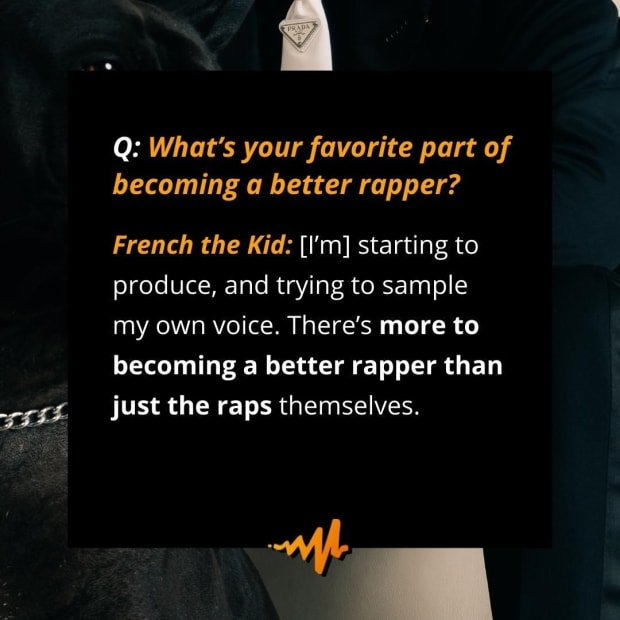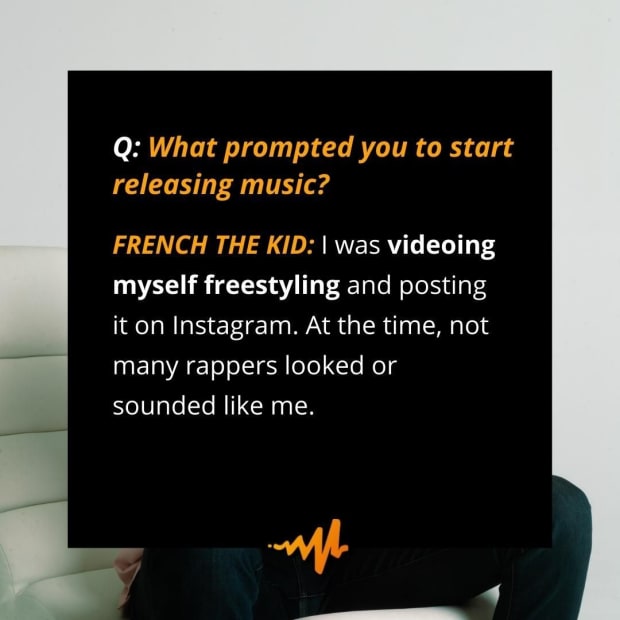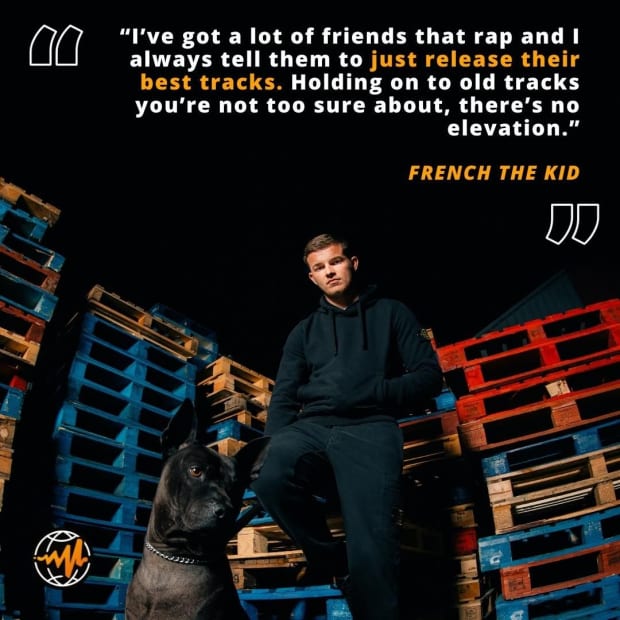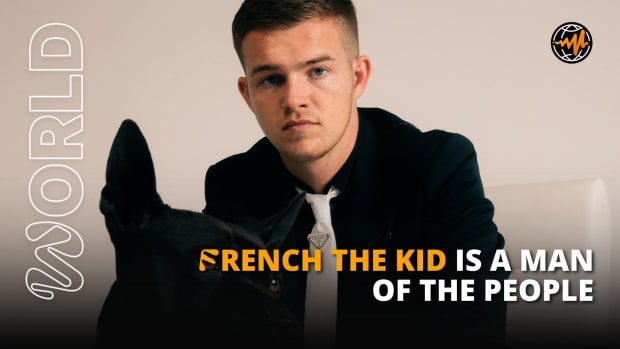UK-based rapper French The Kid may not be ordinary, but he is relatable. He breaks down his new project and ethos for Audiomack World.
Photo Credit: Elliot Hensford
This article previously appeared on Audiomack World.
Back in 2019, an unassuming rapper named French The Kid released his first music video for a tune called “Bella Latina.” The lo-fi video featured him rapping in English and French, slipping seamlessly between languages. Having lived in both France and the UK, the Essex rapper took to posting videos of himself freestyling on Instagram as a foray into releasing music properly.
Before music, French considered himself “your average kid,” but on his debut mixtape Never Been Ordinary, released in early April, the artist sounds anything but. Comprised of songs dating back to three years ago, mixed in with tracks made up to six months before the tape’s release, Never Been Ordinary captures an artist in flight. On every song, French catches the space between vibes and honesty. “Conversations” flays him open, while the ease of “Remedy” feels lounge-ready.
“It’s me!” French tells Audiomack World. “I’m the same person from when I record to when I’m chilling at home, to when I’m in the pub.” Always game for a pint, French has a jubilant demeanor—“happy days” is a favorite phrase. He is a man of the people in appearance, sound, and the way he treats his fans, making it a point to respond to as many people as he can.

Photo Credit: Elliot Hensford
At the core of rap is a need for community-building. When an artist arrives with an everyman energy, something special tends to follow. French The Kid may or may not be ordinary, but he is relatable. No matter the language.
Who was French before music?
I was always into music, but it just happened later. But before music, I was your average kid, really. I was living in France—I moved to France from England, and at 16 I moved back to England again. That’s when I started properly hearing music and wanting to do it.
What prompted you to start releasing music?
You know, I never cared what people thought about it. The way I started, I was videoing myself freestyling and posting it on Instagram. At the time, not many rappers looked or sounded like me. I just jumped into the deep end to do it. I wasn’t gonna wear a mask.
People ate up “Bella Latina” back in ‘19. Did that reception create a sense of pressure or purpose for you?
It was fuel to keep going. The first videos, it was 50-50 hate and non-hate. But it just made me want to release more, to really prove myself. Now, there’s hardly any hate—it’s happy days.
I’ve read that you felt some anxiety about continuing to release bilingual music. Can you speak to that fear?
I’ve lived in France, and I’ve been fluent in French—at certain times I can lose my French. I’ve been in the UK for six years now, and I don’t speak French to anyone. I wouldn’t say I was anxious, but I didn’t want to lose the language.

Photo Credit: Elliot Hensford
How long did it take to make Never Been Ordinary?
The tracks on that tape, most of them are from three years ago. I’ve got all these tracks I haven’t done anything with, and I worked out what should go on the tape. There’s only a few present tracks on that tape. So that was quite easy. I wanted each track to be a different genre of rap, no matter if it’s from three years ago or yesterday.
When I properly thought, “Let’s make a tape,” it wasn’t that long before I released it, to be honest. Probably six months, I reckon.
Was there a song that you held onto for a while, for this tape, that ultimately just didn’t make it?
Loads! There’s loads, loads, loads, about 15 or 20.
How did it feel letting them go?
It’s all learning and teaching yourself, getting better. I’ve got a lot of friends that rap and I always tell them to just release their best tracks. Holding on to old tracks you’re not too sure about, there’s no elevation. You just always hold on to things because you don’t want to lose out on them, but it’s part of the process. It has to be done.

Photo Credit: Elliot Hensford
What’s your favorite part of becoming a better rapper?
Just the music itself. Me becoming a better rapper is me starting to produce, and I’m trying to sample my own voice. There’s more to becoming a better rapper than just the raps themselves. It’s the music, you’ve got to be better at that.
There’s a lot of vulnerability on the tape—what fuels your ability to be so open about your struggles?
I’ve always been comfortable being open. Millions on millions of people relate to you, so being comfortable… People probably have the same problems as you. At the start, it was difficult because the life I was living, I didn’t know how to put it out there. When I started taking music more seriously, it came naturally. I firmed up a good fan base and they wanted to hear [me be open].
Go to Source
Author: Donna-Claire Chesman
